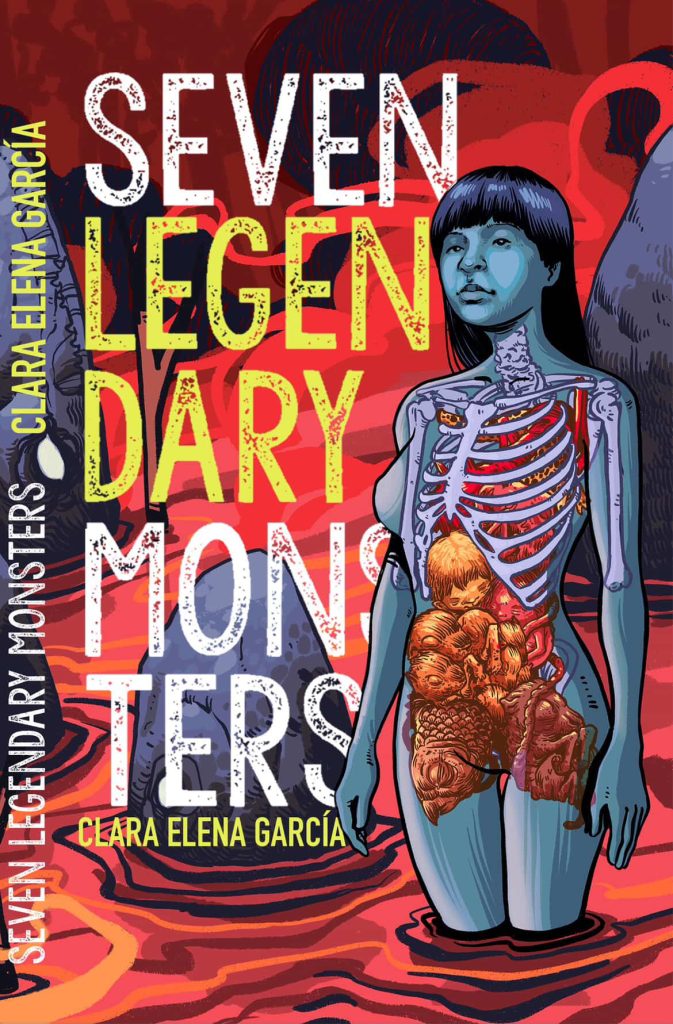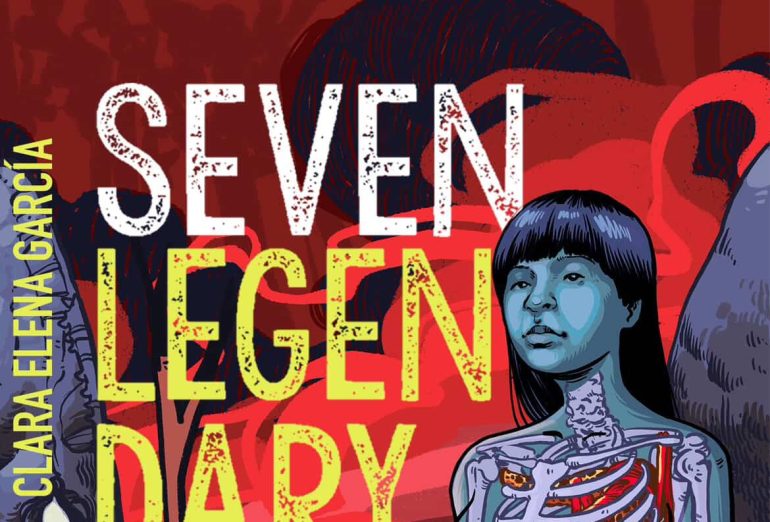Steeped in the myths of her homeland, Paraguayan poet Clara Elena García, now based in New York City, is making waves in the international literary scene with the release of her second book, Siete Monstruos Legendarios (Seven Legendary Monsters). Following the success of her debut poetry collection, Juego de Palabras (Wordplay), García returns with a work that fuses mythology, feminism, and visceral emotion into a collection of haunting verse.
The tales of the Siete Mitos, the seven legendary monstrous brothers, are considered the heart of Guaraní mythology. They are among the best‑known figures in Guaraní mythology: cursed into monstrous forms, each brother is linked to a realm of nature, behaviour or taboo.
Published by Revolutionaries Press (Australia), the book has been released with cover and interior illustrations by renowned Paraguayan street artist Oz Montanía. The project is described as a bold visual and literary homage to the often-overlooked myths of Paraguay.
Writing through fever, fire and myths
When asked what led her to explore Paraguayan mythology through poetry, García points to the importance of cultural representation, and an unexpected moment of inspiration.
“I had read Lotería by Puerto Rican author Cynthia Pelayo,” García tells The Asunción Times. “Her story about Teju Jagua, a giant lizard with a dog’s head, struck a chord. I remember thinking: there are so many more monsters to write about.”
However, it was not until García fell ill with COVID that the poems demanded to be written. “I was feverish, in bed, and it felt as if the stories clawed their way out of me. I finished the first draft in only one week. It felt as though the myths needed to be heard.”

Between lore and language
Researching Paraguayan folklore posed a unique challenge. “There are very few reliable written sources on Paraguayan mythology,” García says. “Many of the accounts are inconsistent or adapted for children.”
Determined to return to the roots, she translated parts of Ñande Ypy Kuéra: Nuestros Antepasados (a rare 20th-century text by poet Narciso Ramón Colman) from both Guaraní, and Spanish. “It was a demanding process. My Guaraní is closer to Jopará – the everyday spoken language in Paraguay that blends Guaraní and Spanish words – so it required a great deal of care.”
She also consulted stories from people she knew, particularly friends in rural Paraguay who had grown up hearing tales of the Siete Mitos, the monstrous brothers.
“Although the lack of written records posed a difficulty, it also gave me the freedom to take creative liberties. In the end, I allowed the monsters to tell their own stories through me. The monsters are, after all, simply reflections of our own humanity, or monstrosity, if you will.”
Myth-making for adult readers
Despite its folkloric foundation, Seven Legendary Monsters is not a children’s book. “It is intended for an adult audience,” García clarifies. Some poems focus on the mortal women entangled in the myths – Keraná, Porasy, and Naipí – and explore their abuse and trauma from a feminist perspective.
Keraná is known as the mortal woman captured and married by the spirit Tau. She is the mother of the seven legendary monsters, who each possess distinct supernatural traits and represent forces of nature and culture. Keraná is often portrayed as a tragic and complex figure, symbolising captivity, motherhood, and transformation.
Porasy is characterised by her beauty, courage, and tragic sacrifice. According to some versions, Porasy confronts the destructive nature of the monstrous brothers to protect humanity, symbolising purity, heroism, and renewal.
Naipí is sometimes connected with nature, fertility, and feminine strength in Guaraní myths. She appears in stories addressing themes of loss, endurance, and the feminine experience within the mythic family. Her story varies among oral traditions, reflecting the fluidity of Guaraní folklore.
Themes of sexuality and fertility, particularly surrounding figures such as Kurupí – a small and hairy brother with an unusually long, prehensile phallus – render the work unsuitable for younger readers. García is unflinching in her mission to confront the darker edges of myth, and to make space for women’s voices within them.
A visual collaboration rooted in magic
To bring the book to life, García collaborated with celebrated Paraguayan muralist Oz Montanía. “Working with Oz was a dream come true. His bold graphic style combined with magical realism has added a rich visual layer to the poems.”
The result is a book that feels both ancient and contemporary, steeped in myth, yet told with the urgency of the present.
Where to find the book?
Seven Legendary Monsters is available for purchase via the Revolutionaries Press official website and will be distributed through major retailers such as Amazon, and independent bookstores in the US. Ebook and audiobook editions will follow.
About the author
Clara Elena García is a Paraguayan poet based in New York. Her writing has appeared in Acentos Review, Cuéntame LitMag, Sonic Boom Journal, and Alebrijes Review, among others. She has also contributed to anthologies by Macmillan, FlowerSong Press, and Band of Bards Comics.
In 2023, she represented Paraguay at the Festival de Poesía de las Américas in New York, and has since spoken at the Hispanic/Latino Book Fair of Queens and the Ibero-American Poetry Summit at Barnard College. In 2024, she joined poet Rigoberto González and translator Alexis Romay in a panel on the role of Spanish-language poetry in the acclaimed “Open Book/Open Mind” series in New Jersey.
She is currently working on a children’s book and a young adult fantasy novel in verse, both inspired by Paraguayan folklore. For updates on her work and upcoming projects, follow Clara Elena García on Instagram.


